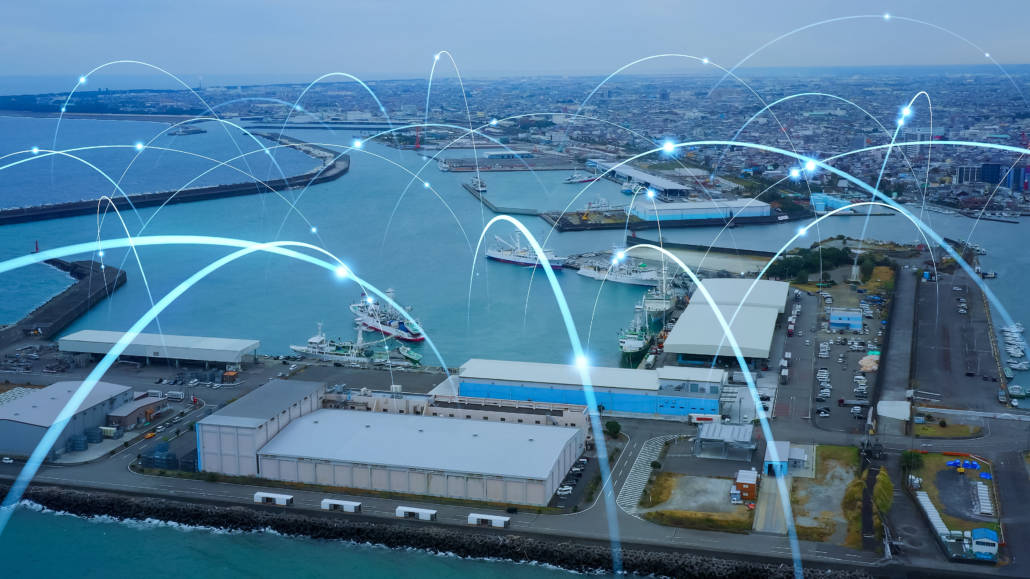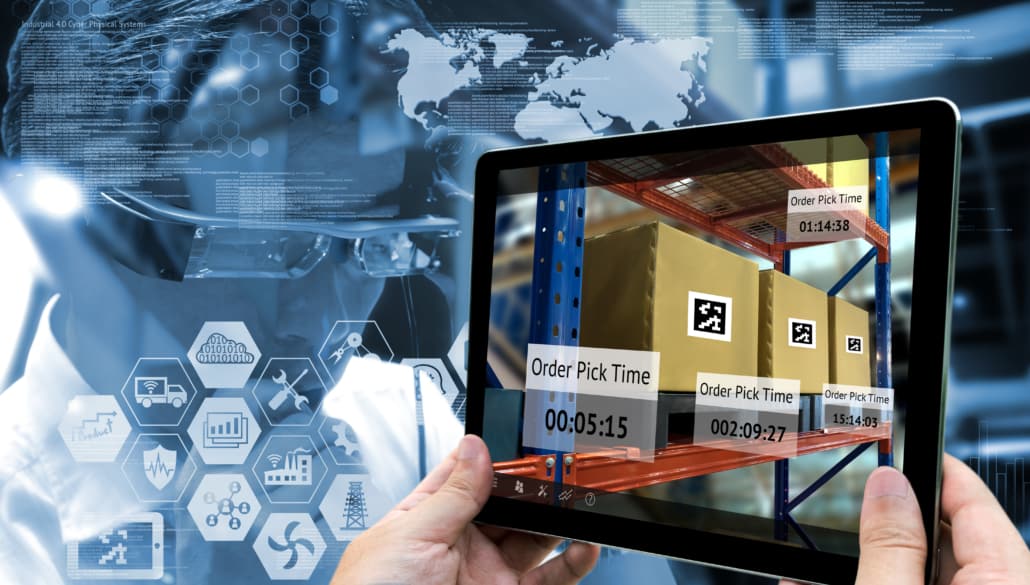The supply chain is an integral component of a business, and most industry professionals predict that supply chains will streamline their operations and provide better customer services after the Covid-19 pandemic. So, as the year 2022 progresses, companies will see exciting trends in the industry.
For instance, some of the most popular trends in the supply chain for advanced manufacturers are adopting artificial intelligence, machine learning, big data, the Internet of things (IoT), omnichannel marketing, sustainability, etc.
These trends will reshape the supply chain industry and positively impact advanced manufacturers, allowing them to streamline operations and achieve the desired results. Today’s article will discuss the latest trends in the supply chain!

Artificial Intelligence and Machine Learning
Artificial intelligence and machine learning algorithms can transform advanced manufacturing companies’ supply chain operations and processes. A growing body of research evidence shows that machine learning enables companies to develop an automated system, reading, identifying, and replicating complex patterns, content, and procedures.
For instance, your employees can prevent repetitive tasks and leverage the power of automated tools based on artificial intelligence and machine learning algorithms. Automation tools can handle different tasks and optimize processes.
In addition, more than 37% of companies have incorporated artificial intelligence-based systems in their organizations, which is expected to grow by 2025. Manufacturing companies implementing artificial intelligence and machine learning systems in their supply chain will improve operations.
These operations include better inventory management, supplier selection process, staff productivity, and customer experience. So, if you implement a tailored system in your supply chain, your company is more likely to achieve efficiency with automation.
The reason is that artificial intelligence reduces or eliminates the risk of human errors. At the same time, these systems automate processes, including machine response to customers’ requests and ensuring all documents are free from errors.

IoT and Big Data
The Internet of things, also known as IoT, are intelligent systems or devices with advanced features that gather and transmit data over a supply chain network. You can use IoT devices to obtain and analyze data for different purposes. IoT devices in supply chain management for advanced manufacturers increase logistics efficiency and prevent delivery disruptions.
So, focusing on IoT and big data analytics is one of the best ways to reduce risks and develop solutions for potential challenges. Manufacturers that use IoT and big data analytics can build a more resilient supply chain strategy and resolve issues like logistics schemes stretching across continents.
The Covid-19 pandemic has forced manufacturing companies to think about their traditional strategies and systems and how fragile they are to increase risks in supply chains. Covid-19 has skyrocketed labor and transportation costs and the demand for specific product groups.
However, you can leverage advanced technologies to revolutionize supply chains, maintain business operations, and achieve cost-effectiveness. Remember to select or develop IoT technologies that best fit your business needs.
Moreover, IoT devices are easy to install, use, and maintain, making them an excellent alternative to human oversight, especially when collecting, analyzing, and exchanging data.
Bear in mind that data plays a crucial role in tracking and monitoring operations, reducing delivery time and cost, and cutting losses along the way. So, IoT and big data are the future of supply chain management.

Flexibility and Agility
Advanced manufacturers seeking to make their supply chains function optimally, efficiently, and reliably must adopt agility and flexibility. An agile approach can help manufacturers respond to changes within a short period.
The agile and flexible trend in supply chain management has empowered manufacturers to shift from conventional methods and adopt new techniques. Unforeseen events in supply chains are widespread and cause severe problems.
However, when a company adopts an agile approach, it can cope with unforeseen events, such as pandemics and natural disasters. An agile supply chain is directly proportional to navigating scarcity and disruption.
Agility and flexibility enable manufacturing companies and their teams to predict, identify, and analyze potential issues and develop sophisticated solutions. The purpose is to respond to risks, disruptions, and issues in production, supply, and delivery more efficiently and quickly.
Eco-Friendliness and Sustainability
Advancement of green technologies, logistics, and supply chain is another trend advanced manufacturers should consider maintaining sustainability in their operations and processes.
In addition to benefiting humans and the environment, green technologies are cost-effective, increase customer loyalty, promote brand recognition, and help fulfill your corporate social/environmental responsibility.
Research shows that 66% of consumers prioritize an eco-friendly and sustainable company. Likewise, businesses that advocate for eco-friendliness and sustainability experience 5.6 times more growth than companies that follow conventional approaches.
Adopting green strategies and practicing sustainability reduces manufacturing companies’ carbon footprint, drives more clients to their business, builds a solid reputation, and generates higher revenues.

Blockchain Technology
Blockchain technology is another popular trend for advanced manufacturers, enabling them to streamline their supply operations by recording price, date, quality, location, and other relevant data to manage supply chains efficiently, reliably, and professionally.
Blockchain makes available this valuable data and information. It ensures companies increase material supply chain traceability, reduce losses from the gray market and counterfeit, and improve visibility and compliance over contract manufacturing.
As a result, blockchain empowers an organization to become an industry leader focusing on responsible manufacturing. Similarly, blockchain technology improves supply chain transparency and reduces costs and risks across the supply chain. In fact, blockchain technology can help manufacturers:
- Increase traceability of material supply chain
- Meet corporate and industrial standards
- Lower losses from the gray market trading
- Mitigate the risk of counterfeits
- Increase brand visibility
- Better compliance over outsourced contract manufacturing
- Streamline administrative tasks and reduce manual paperwork
- Improve business credibility due to real-time data analysis
- Mitigate the risk of malpractices in the supply chain
In addition, blockchain technology brings more transparency and accuracy in end-to-end tracking throughout the supply chain network. Manufacturers can digitize their physical assets and establish a decentralized system to maintain records of all transactions efficiently and securely.
So, blockchain enables companies to track assets from production to delivery to customer usage. Not only does this increase supply chain transparency, but it also establishes more visibility and trust between businesses and consumers.
Moreover, blockchain reduces fraudulent activities for high-value productions, such as pharmaceutical drugs, gold, diamonds, etc. It enables manufacturers to understand the processes of passing ingredients and finished goods to each subcontractor.
At the same time, it reduces profit losses from the gray market and counterfeit trading and boosts confidence among all stakeholders, particularly end-market users. So, blockchain is another trend in the supply chain for advanced manufacturers.
Advanced Risk Management
The supply chain industry frequently experiences disruptions due to volatility and unpredictability caused by Covid-19 and the Russian-Ukrainian war. Likewise, companies can’t predict political events, mitigate the risk of wars, control the weather, or foresee the negative impact of pandemics.
So, how can companies prepare themselves and respond to these unprecedented threats? Manufacturing companies can avoid sourcing raw materials from volatile countries/areas and look into other geographic locations with more stability.
So, if anything is unprecedented, you can minimize the harsh impact, avoid disruption, and streamline business operations. Remember, this requires thorough planning and preparation based on historical and real-time data. To avoid uncertainties, you can use advanced systems to predict potential threats and shift your strategy on time.
SaaS Models and Solutions
Like digitization, SaaS models and cloud solutions can transform the future of manufacturing companies and their operations, including supply chain management. Conventional supply chain management or strategies can’t resolve contemporary issues, preventing companies from staying competitive.
On the other hand, making your company stand out from the competition in the supply chain industry requires accuracy, agility, and accessibility to modern solutions. SaaS or software-as-a-service models are cutting-edge solutions to optimize supply chain management.
Manufacturers can use SaaS to ensure reliability, security, efficiency, and convenience because cloud-based technologies can store your organization’s data and allow your teams to access it from anywhere.

Globalization
Supply chain networks have become more global in the past decade due to advancements in information and communication technologies (ICTs). Globalization directly impacts the way companies manage and transacts business operations.
The supply chain is one of the critical areas affected by globalization and related trends for manufacturers. Manufacturing, distribution, materials sourcing, invoicing, and returns depend on globalization because it integrates suppliers and consumers worldwide.
Conventional systems are not efficient and flexible enough to streamline operations in this new business environment. For instance, companies would bring container shipments from Australia, New Zealand, Japan, and the Philippines through Southern California ports.
However, the increased volume of container shipments caused ports to experience capacity problems, including customs clearance and transshipping. To avoid this issue, companies focused on globalization and created supply chain networks based on modern technologies.
For instance, globalization enables dynamic repositioning entry points for inbound container shipments, positively impacting custom clearance durations and accessing better transportation capacity.
However, this requires companies to design a suitable supply chain strategy and manage changes caused by swift globalization. An accurate design based on predictive models, mathematical solutions, statistical data, advanced artificial intelligence, and machine learning algorithms can help companies create a more streamlined supply chain network and improve materials flow through the network.
Outsourcing
Supply chain management is an integral component of every business’s success. It involves idea creation, analysis, production, distribution, etc., making it a complex process. How well a company manages this process is directly proportional to increased revenues and profits.
Because most manufacturers step back and evaluate their core competencies, they outsource supply chain projects. Outsourcing is an excellent way to streamline supply chain systems with information mediums, quality and cost of global manufacturing and distribution, and product design capabilities.
Although manufacturers can benefit from outsourcing their supply chain operations, selecting a reliable outsourcing company is daunting and time-consuming. Therefore, make sure you choose an outsourcing service with advanced systems, processes, and organizational management structure to reduce risks and achieve your goals.
A professional outsourcing service focuses on superior supply chain network design, establishes control mechanisms to monitor activities, builds information systems to connect and coordinate with companies, and uses data analytics.
Final Words
Understanding the latest trends in the supply chain can optimize manufacturers’ operations, build brand reputation, increase revenues, and improve the overall business’s bottom line.
Technology advancements and process upgrades can make your company stand out from the competition, reach new markets, and expand your business. So, keep an eye on the trends above to achieve your goals, and contact us for more information. Until Next Time!
















































